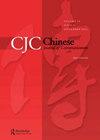{"title":"网络反智主义和寻找新冠病毒变种信息","authors":"Danting Huang, Hongfeng Qiu, Xinying Yang","doi":"10.1080/17544750.2023.2169836","DOIUrl":null,"url":null,"abstract":"While scientific knowledge acquisition is a vital premise for citizens' self-protection against COVID-19, the impact of anti-intellectualism on scientific information seeking has yet to be fully examined. Based on a cross-sectional survey, this study investigated the association of distrust and stigmatization forms of anti-intellectualism (i.e. AID vs. AIS) with the Planned Risk Information Seeking Model (PRISM) in predicting Chinese netizens' information seeking about SARS-CoV-2 variants. The statistical results show that AIS is positively associated with seeking-related subjective norms and perceived control, indicating that it may boost a sense of self-empowerment. However, AIS is negatively related to affective risk response and the knowledge-sufficiency threshold, suggesting its possible link to overconfidence and trust in government. AID was found to be negatively associated with seeking-related attitudes and perceived control. Because AIS is far more popular than AID among respondents, its contradictory health implications should be brought into the vision of health communicators. © 2023 The Centre for Chinese Media and Comparative Communication Research, The Chinese University of Hong Kong.","PeriodicalId":46367,"journal":{"name":"Chinese Journal of Communication","volume":"22 1","pages":""},"PeriodicalIF":1.9000,"publicationDate":"2023-02-01","publicationTypes":"Journal Article","fieldsOfStudy":null,"isOpenAccess":false,"openAccessPdf":"","citationCount":"0","resultStr":"{\"title\":\"Cyber anti-intellectualism and information seeking about SARS-CoV-2 variants\",\"authors\":\"Danting Huang, Hongfeng Qiu, Xinying Yang\",\"doi\":\"10.1080/17544750.2023.2169836\",\"DOIUrl\":null,\"url\":null,\"abstract\":\"While scientific knowledge acquisition is a vital premise for citizens' self-protection against COVID-19, the impact of anti-intellectualism on scientific information seeking has yet to be fully examined. Based on a cross-sectional survey, this study investigated the association of distrust and stigmatization forms of anti-intellectualism (i.e. AID vs. AIS) with the Planned Risk Information Seeking Model (PRISM) in predicting Chinese netizens' information seeking about SARS-CoV-2 variants. The statistical results show that AIS is positively associated with seeking-related subjective norms and perceived control, indicating that it may boost a sense of self-empowerment. However, AIS is negatively related to affective risk response and the knowledge-sufficiency threshold, suggesting its possible link to overconfidence and trust in government. AID was found to be negatively associated with seeking-related attitudes and perceived control. Because AIS is far more popular than AID among respondents, its contradictory health implications should be brought into the vision of health communicators. © 2023 The Centre for Chinese Media and Comparative Communication Research, The Chinese University of Hong Kong.\",\"PeriodicalId\":46367,\"journal\":{\"name\":\"Chinese Journal of Communication\",\"volume\":\"22 1\",\"pages\":\"\"},\"PeriodicalIF\":1.9000,\"publicationDate\":\"2023-02-01\",\"publicationTypes\":\"Journal Article\",\"fieldsOfStudy\":null,\"isOpenAccess\":false,\"openAccessPdf\":\"\",\"citationCount\":\"0\",\"resultStr\":null,\"platform\":\"Semanticscholar\",\"paperid\":null,\"PeriodicalName\":\"Chinese Journal of Communication\",\"FirstCategoryId\":\"98\",\"ListUrlMain\":\"https://doi.org/10.1080/17544750.2023.2169836\",\"RegionNum\":2,\"RegionCategory\":\"文学\",\"ArticlePicture\":[],\"TitleCN\":null,\"AbstractTextCN\":null,\"PMCID\":null,\"EPubDate\":\"\",\"PubModel\":\"\",\"JCR\":\"Q2\",\"JCRName\":\"COMMUNICATION\",\"Score\":null,\"Total\":0}","platform":"Semanticscholar","paperid":null,"PeriodicalName":"Chinese Journal of Communication","FirstCategoryId":"98","ListUrlMain":"https://doi.org/10.1080/17544750.2023.2169836","RegionNum":2,"RegionCategory":"文学","ArticlePicture":[],"TitleCN":null,"AbstractTextCN":null,"PMCID":null,"EPubDate":"","PubModel":"","JCR":"Q2","JCRName":"COMMUNICATION","Score":null,"Total":0}
引用次数: 0
Cyber anti-intellectualism and information seeking about SARS-CoV-2 variants
While scientific knowledge acquisition is a vital premise for citizens' self-protection against COVID-19, the impact of anti-intellectualism on scientific information seeking has yet to be fully examined. Based on a cross-sectional survey, this study investigated the association of distrust and stigmatization forms of anti-intellectualism (i.e. AID vs. AIS) with the Planned Risk Information Seeking Model (PRISM) in predicting Chinese netizens' information seeking about SARS-CoV-2 variants. The statistical results show that AIS is positively associated with seeking-related subjective norms and perceived control, indicating that it may boost a sense of self-empowerment. However, AIS is negatively related to affective risk response and the knowledge-sufficiency threshold, suggesting its possible link to overconfidence and trust in government. AID was found to be negatively associated with seeking-related attitudes and perceived control. Because AIS is far more popular than AID among respondents, its contradictory health implications should be brought into the vision of health communicators. © 2023 The Centre for Chinese Media and Comparative Communication Research, The Chinese University of Hong Kong.

 求助内容:
求助内容: 应助结果提醒方式:
应助结果提醒方式:


